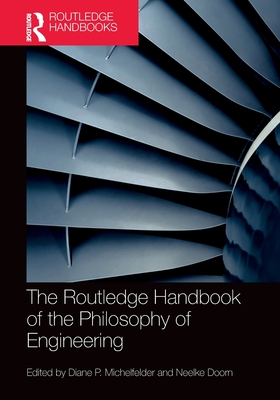The Routledge Handbook of the Philosophy of Engineering

The Routledge Handbook of the Philosophy of Engineering
Engineering reasoning
Ontology
Engineering design processes
Engineering activities and methods
Values in engineering
Responsibilities in engineering practice
Reimagining engineering
The Routledge Handbook of the Philosophy of Engineering will be of value for both students and active researchers in philosophy of engineering and in cognate fields (philosophy of technology, philosophy of design). It is also intended for engineers working both inside and outside of academia who would like to gain a more fundamental understanding of their particular professional field. The increasing development of new technologies, such as autonomous vehicles, and new interdisciplinary fields, such as human-computer interaction, calls not only for philosophical inquiry but also for engineers and philosophers to work in collaboration with one another. At the same time, the demands on engineers to respond to the challenges of world health, climate change, poverty, and other so-called "wicked problems" have also been on the rise. These factors, together with the fact that a host of questions concerning the processes by which technologies are developed have arisen, make the current Handbook a timely and valuable publication.
451.10Lei
451.10Lei
Livrare in 2-4 saptamani
Descrierea produsului
Engineering reasoning
Ontology
Engineering design processes
Engineering activities and methods
Values in engineering
Responsibilities in engineering practice
Reimagining engineering
The Routledge Handbook of the Philosophy of Engineering will be of value for both students and active researchers in philosophy of engineering and in cognate fields (philosophy of technology, philosophy of design). It is also intended for engineers working both inside and outside of academia who would like to gain a more fundamental understanding of their particular professional field. The increasing development of new technologies, such as autonomous vehicles, and new interdisciplinary fields, such as human-computer interaction, calls not only for philosophical inquiry but also for engineers and philosophers to work in collaboration with one another. At the same time, the demands on engineers to respond to the challenges of world health, climate change, poverty, and other so-called "wicked problems" have also been on the rise. These factors, together with the fact that a host of questions concerning the processes by which technologies are developed have arisen, make the current Handbook a timely and valuable publication.
Detaliile produsului










